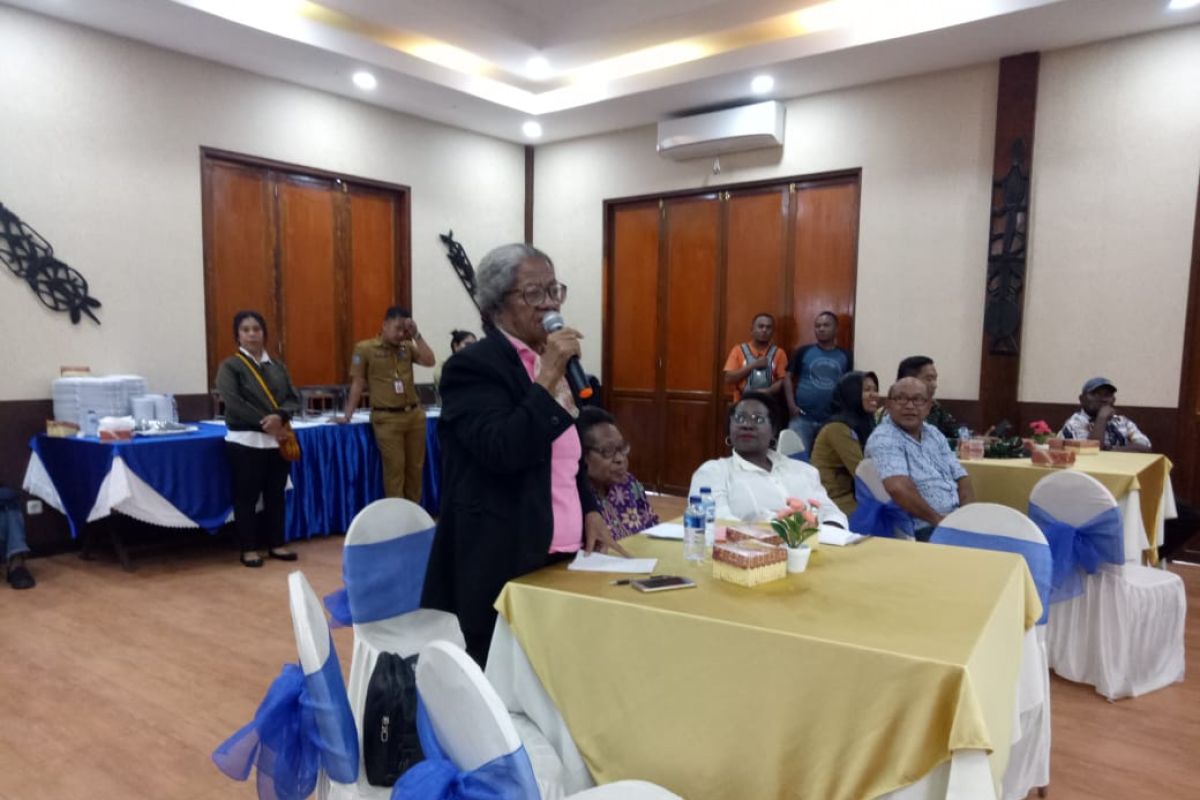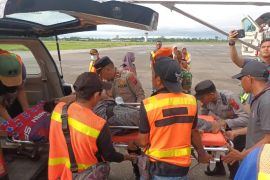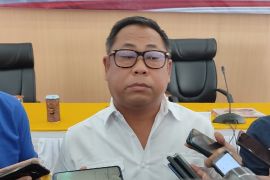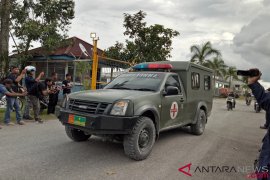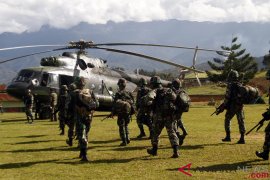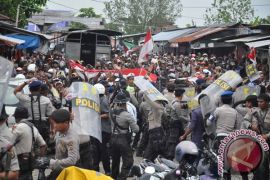"The special autonomy funds must not be allocated to erect buildings and infrastructure facilities. Again, the money must be optimally used for empowering the native Papuans, so that they do not demand independence," she noted.Timika, Papua (ANTARA) - Leading Papuan feminist appealed to the Mimika district government to better care for native Papuans to protect them from being affected by people propagating the ideology of separatism against the Republic of Indonesia.
"The special autonomy funds that the central government has granted to Papua are the result of the Papuan people's struggle," Chairperson of the Papuan Women's Solidarity (SPP)-Mimika Chapter Ros Namsa Kabes stated here on Saturday.
However, Kabes questioned where the money would go following the transfer of special autonomy funds to the regional government. Hence, she warned that the money should not be misused but instead be channeled to empower the indigenous Papuans.
Kabes drew attention to the living condition of Papuan housewives.
"Every day, 'mama-mama' (mothers) in Papua go to local markets for selling goods amid the heat and rainy days while being pregnant or holding children and by sitting on ground," Kabes stated.
"Do the local government officials have the heart to see them like this while driving their cars and passing them by?" Kabes noted.
Taking into account the native Papuan women's fate, she urged those with authority in local governments to not misuse the allocated special autonomy funds for self-enrichment.
In its place, the special autonomy funds must be utilized in the most favorable manner to empower the indigenous Papuans through good quality of education, health services, and empowerment programs.
"The special autonomy funds must not be allocated to erect buildings and infrastructure facilities. Again, the money must be optimally used for empowering the native Papuans, so that they do not demand independence," she noted.
Kabes also highlighted the civil servant recruitment policies that remain favorable for non-native Papuans.
"In the Mimika district administration, for instance, almost all strategic structural positions there are dominated by the non-native Papuans; not those from the Amungme and Kamoro ethnic groups," she remarked.
In best handling this condition, the Mimika district government should send the children of Amungme and Kamoro ethnic groups to receive good-quality education, so that they become well-educated and are able to get promoted to take up strategic positions, she stated.
Related news: Restore security and order in Papua: President
Over this past week, native Papuans in several parts of the provinces of Papua and West Papua held demonstrations protesting alleged racist slurs against the Papuan students in Surabaya, East Java, on August 16.
On August 29, the indigenous Papuan residents of Jayapura, the capital city of Papua, again staged protests, expressing their ire over the alleged racist slurs against their Papuan compatriots in Surabaya, East Java, on August 16, but their rally took a violent turn.
The brutal demonstrators went berserk, vandalizing and setting ablaze several government buildings. The office of ANTARA, Indonesia's national news agency, in the city was also intentionally damaged by the demonstrators on Thursday.
On August 28, a circle of violence also broke out in Deiyai District, some 500 kilometers away from Jayapura. It ended with the death of an army soldier and two civilians.
On August 19, several thousand people in Manokwari, West Papua Province, and Jayapura, Papua Province, had protested to voice their discontent over alleged racist action against Papuan students in Surabaya and Malang, East Java.
Related news: Melanesia Solidarity rejects Papuan referendum
During the rally in Manokwari, a local parliamentary building was set on fire. The demonstrators also torched tires in several parts of the city and main streets.
However, National Police Chief General Tito Karnavian stated that normalcy was restored in Manokwari. He also ordered the police chiefs of Papua and West Papua to adopt security measures and avoid the use of excessive force.
In response to the Surabaya incident, on August 22, leaders of several ethnic community-based organizations held a meeting in Biak Numfor District. They deplored the incident that had triggered a public ire, expressing their complete rejection of all forms of racism and intolerance against indigenous Papuans.
EDITED BY INE
Related news: Papua police chief asks businessmen to resume activities
Related news: President Jokowi leads limited meeting on Papua
Translator: Evarianus S, Rahmad Nasution
Editor: Fardah Assegaf
Copyright © ANTARA 2019
